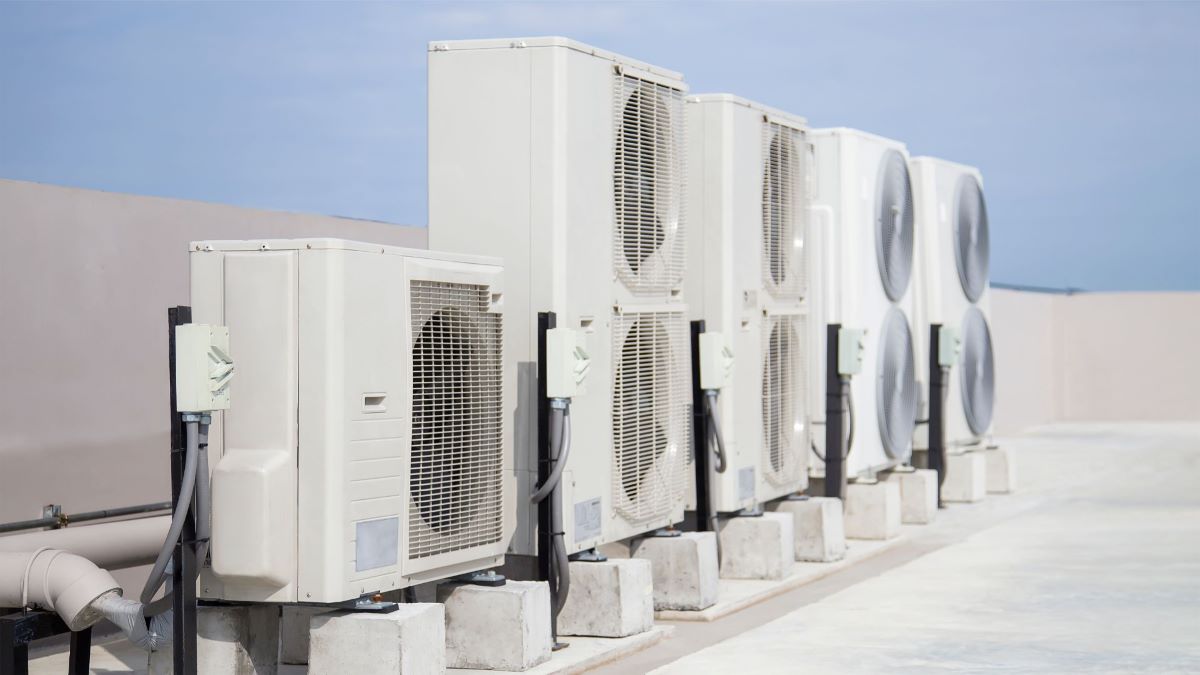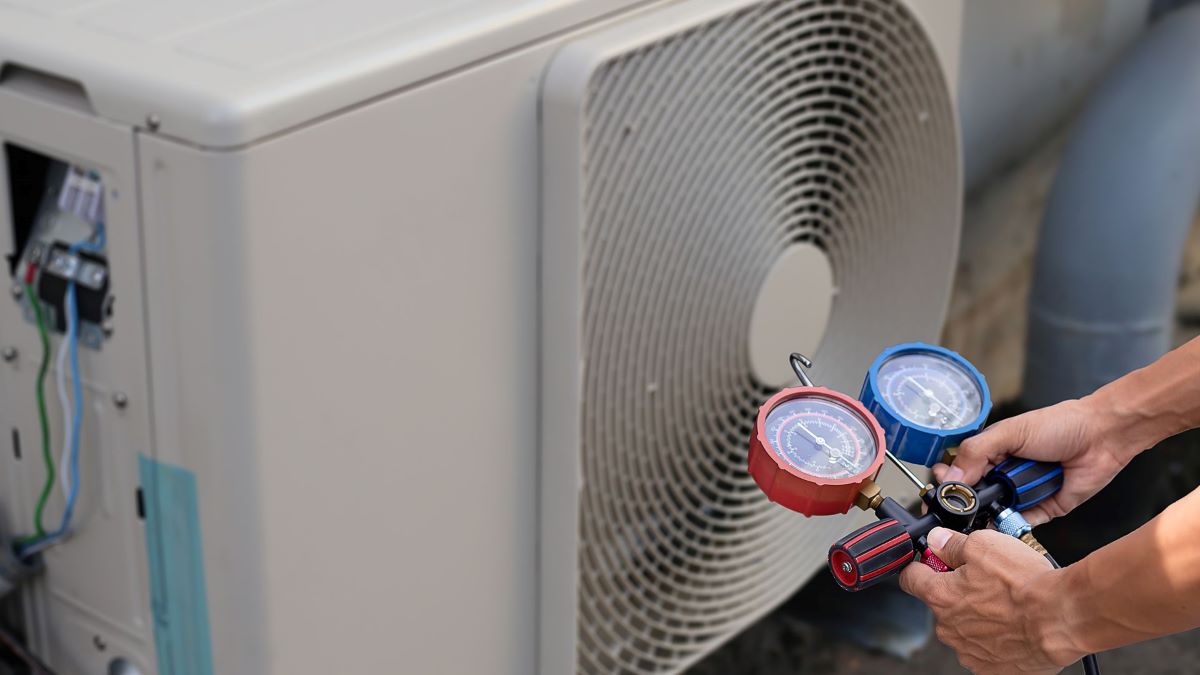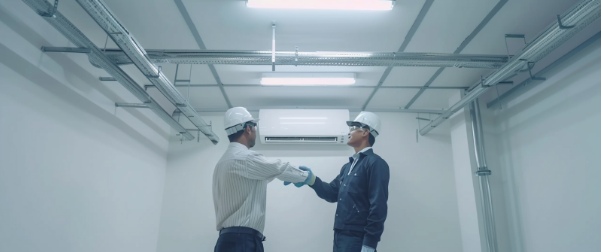How Do I Sell My HVAC Business? A Comprehensive Guide
How Do I Sell My HVAC Business?
Are you considering selling your HVAC business but not sure where to start? This article will provide you with valuable information on why someone would want to sell their HVAC business, the benefits of doing so, and how to prepare for the sale.
Deciding to “sell my HVAC business” is not enough. We will discuss the initial steps to take, how to determine the value of your business, and the process of finding potential buyers. We will also cover the challenges, common mistakes to avoid, and the tax implications of selling an HVAC business, so stay tuned!
Why Would Someone Want to Sell Their HVAC Business?
Selling an HVAC business can be a strategic decision driven by various factors such as changing market conditions, personal circumstances, or the desire to explore new opportunities.
One key reason individuals or companies might consider selling their HVAC business is to capitalize on profit opportunities. As the industry experiences fluctuations in demand and technology advancements, selling at the right time can lead to a substantial financial gain.
In addition, valuation plays a crucial role in determining the worth of the business, and selling when the business is at its peak valuation can maximize returns.
Some owners may find it challenging to manage the complexities of running an HVAC business efficiently, leading them to opt for a sale to new owners with better management capabilities.
What Are the Common Reasons for Selling an HVAC Business?
Owners may choose to sell their HVAC business due to reasons such as financial challenges like debt, tax implications, merger or acquisition opportunities, changing employment dynamics, risk management considerations, or to capitalize on the asset’s market value.

When facing financial challenges, selling a business burdened by debt can provide relief and a fresh start for individuals or companies. For some, the tax implications of holding onto the HVAC business may outweigh the benefits, leading to a decision to sell.
Merger and acquisition opportunities in the HVAC industry can be enticing, prompting owners to explore selling as a strategic move. Employment trends play a crucial role as well, with shifting dynamics influencing decisions to sell and optimize operations. Selling the business can be a proactive step towards risk mitigation and maximizing asset valuation.
What Are the Benefits of Selling an HVAC Business?
Selling an HVAC business can offer various benefits for business owners looking to transition out of the industry or pursue new opportunities. Here are some key advantages of selling an HVAC business:
- Financial Gain: Selling your HVAC business can provide a significant financial windfall, allowing you to cash out on your investment and realize the value you’ve built over the years.
- Retirement Planning: Selling your HVAC business can be a strategic move for retirement planning, providing you with the funds needed to enjoy your retirement years comfortably.
- Opportunity for Growth: For business owners looking to pursue other ventures or explore new opportunities, selling the HVAC business can free up time, resources, and energy to focus on new endeavors.
- Reduced Risk: Transitioning out of the HVAC industry through a sale can help mitigate risks associated with market fluctuations, regulatory changes, and industry challenges, providing a sense of stability and security.
- Legacy Preservation: Selling your HVAC business to a new owner who shares your values and vision can help preserve the legacy you’ve built, ensuring that your business continues to thrive and serve its community.
How Do You Prepare to Sell an HVAC Business?
First and foremost, conducting thorough due diligence includes reviewing financial records, contracts, and legal agreements to ensure transparency and mitigate potential risks.
Customer relationship management enhancements are crucial; ensuring loyal customer retention and building strong relationships can significantly increase the attractiveness of the business to buyers.
Evaluating assets like equipment, vehicles, and real estate is important, as is determining their market value to establish accurate pricing. Managing inventory levels and optimizing supply chain practices can also streamline operations, increasing efficiency and value.
Analyzing expenses carefully will help identify areas for cost reduction and improve overall profitability, enhancing the business’s appeal in the eyes of potential buyers.
What Are the Initial Steps to Take Before Selling?
Before selling your HVAC business, it’s essential to take several initial steps to ensure a smooth and successful transition. Here are some key actions to consider:
- Evaluate Your Business: Assess the current state of your HVAC business, including financial performance, operational efficiency, and market position. Understanding your business’s strengths, weaknesses, opportunities, and threats (SWOT analysis) will help you identify areas for improvement and enhance its overall value.
- Organize Financial Records: Gather and organize all financial records, including income statements, balance sheets, tax returns, and cash flow statements. Clear and transparent financial documentation is crucial for potential buyers to assess the business’s financial health and make informed decisions.
- Determine Your Business’s Value: Conduct a comprehensive valuation of your HVAC business to determine its fair market value. Consider factors such as revenue, profitability, customer base, assets, growth potential, and industry trends to arrive at an accurate valuation.
- Prepare Your Business for Sale: Enhance the appeal of your HVAC business by addressing any operational inefficiencies, upgrading equipment, and improving customer relationships. Investing in curb appeal, branding, and marketing can also increase the attractiveness of your business to potential buyers.
- Seek Professional Advice: Consider hiring a business broker, accountant, or attorney with experience in selling HVAC businesses to guide you through the process. These professionals can provide valuable insights, handle negotiations, and ensure that the sale proceeds smoothly and efficiently.
How Do You Determine the Value of an HVAC Business?
Valuing an HVAC business involves analyzing income streams, assessing expenses, evaluating assets, determining the fair market value, and accounting for depreciation to arrive at a comprehensive and accurate valuation figure.
Income analysis is a crucial component in understanding the revenue generated by the HVAC business. This involves examining historical financial data, current revenue streams, and forecasting future income potential.
Expense evaluation is another critical factor that looks at operating costs, overhead expenses, and any other financial outflows impacting the business. By conducting a thorough examination of these expenses, one can gauge the profitability and sustainability of the business.
Asset appraisal is essential for determining the worth of the physical assets owned by the HVAC business. This includes assessing equipment, property, inventory, and other tangible items that contribute to the business’s overall value.
Fair market value assessment involves comparing the business’s assets, income, and expenses with industry benchmarks and market conditions to establish a realistic valuation. Depreciation calculations help adjust the asset values over time to reflect their true worth and ensure an accurate representation of the business’s financial health.
What Is the Process of Selling an HVAC Business?
The process of selling an HVAC business involves addressing legal considerations, negotiating terms with potential buyers, and ensuring all key documents are meticulously prepared and reviewed for a smooth transaction.
Legal considerations play a crucial role in the sales process, starting with ensuring compliance with industry regulations and contracts. It is essential to have a thorough understanding of local laws related to business sales to avoid any potential legal pitfalls.
When negotiating terms with potential buyers, effective communication is key. Clearly outlining the terms of the sale, including price, payment terms, and any contingencies, can help in reaching a mutually beneficial agreement.
Organizing and presenting key documentation, such as financial statements, equipment inventories, and customer contracts, is vital in showcasing the value of the HVAC business. This transparency can build trust with buyers and expedite the due diligence process.
What Are the Key Documents Needed for the Sale?
Before selling an HVAC business, it’s crucial to ensure that you have all the necessary documents in order to facilitate a transparent and legally compliant transaction. Here are the critical documents required:
- Contracts: Contracts are essential as they outline the agreements between parties involved in the sale, detailing terms and conditions that govern the transaction.
- Ownership Records: Ownership records serve as proof of legitimate possession of the business, ensuring a smooth transfer process and providing assurance to potential buyers.
- Confidentiality Agreements: Confidentiality agreements are important for safeguarding sensitive business information, ensuring trust and confidentiality throughout the sale process.
- Employment Contracts: Employment contracts are vital for maintaining stability within the workforce and outlining employees’ responsibilities post-sale.
- Detailed Inventory Lists: Detailed inventory lists showcase the business’s assets and their value, aiding in valuation and negotiation discussions, and contributing to a successful business handover.
How Do You Find Potential Buyers for an HVAC Business?
Identifying potential buyers for an HVAC business involves several strategies, including:
- Leveraging market insights: Conducting in-depth market analysis helps identify key trends and potential buyers who align with the business’s offerings.
- Implementing targeted advertising campaigns: Understanding the market dynamics helps tailor advertising tactics to reach the right audience efficiently.
- Engaging with the existing customer base: Engaging with the current customer base through personalized communication fosters loyalty and can lead to referrals to new potential buyers.
- Showcasing strong cash flow projections: Presenting compelling financial projections demonstrates the business’s growth potential and profitability
- Highlighting the business’s valuation to attract interested parties: Highlighting a solid track record of revenue streams and operational efficiency can instill confidence in prospective buyers. Promoting the business’s valuation through transparent and detailed documentation can attract serious inquiries and facilitate negotiations for a successful sale.
What Are the Negotiation Strategies for Selling an HVAC Business?
Negotiating the sale of an HVAC business requires strategic approaches to manage risks, maximize equity realization, satisfy buyer demands, and secure favorable profit margins in a competitive marketplace.
One effective negotiation tactic is to conduct a thorough due diligence process to identify and address potential risks before they become deal-breakers. By proactively mitigating risks, sellers can instill confidence in buyers and facilitate smoother negotiations.
Also, enhancing the equity of the business through strategic positioning can increase its attractiveness, allowing sellers to command a higher selling price. Demonstrating growth potential and a strong customer base can significantly improve negotiating power.
Addressing buyer demands promptly and professionally is crucial in maintaining their interest. Engaging with potential buyers and understanding their needs can help tailor the deal structure to meet their requirements.
What Are the Legal Considerations for Selling an HVAC Business?
Legal considerations in selling an HVAC business involve maintaining confidentiality, verifying ownership rights, ensuring license compliance, addressing tax implications, and reviewing insurance coverage to safeguard all parties involved in the transaction.
Confidentiality protocols are crucial in ensuring that sensitive business information remains secure throughout the selling process, preventing any potential breaches that could harm the business or compromise its value.
Ownership verification procedures are essential to confirm that the seller has the legal right to transfer the business, and that there are no disputes or claims against the ownership that could hinder the sale.
Conducting thorough license checks is vital to guarantee that the HVAC business operates within all regulatory frameworks and possesses the necessary permits to avoid any legal complications post-sale.
Comprehensive tax obligations assessment is necessary to determine the tax liabilities associated with the transaction and ensure compliance with tax laws, preventing any unexpected financial burdens.
Reviewing insurance protection measures is critical to safeguard all parties from potential risks or liabilities that may arise during or after the sale, providing financial security and peace of mind.

What Are the Challenges of Selling an HVAC Business?
One of the key hurdles that owners may encounter when selling their HVAC business is handling employee-related issues. This can involve ensuring staff stability during the transition, addressing potential morale concerns, and maintaining productivity levels.
Tax challenges can add another layer of complexity to the process. Owners may need to navigate through tax implications specific to the sale of a business, potentially affecting the overall financial outcome of the transaction.
Inventory management complexities can also pose significant obstacles. Properly valuing and transitioning inventory assets while avoiding overstock or shortages requires careful planning and execution.
The importance of a smooth ownership transfer cannot be overstated. Establishing clear agreements and protocols for the transfer of ownership is crucial to maintaining business continuity and preserving customer relationships.
What Are the Common Mistakes to Avoid When Selling an HVAC Business?
One prevalent error that should be avoided at all costs is underestimating the importance of accurate financial documentation, as discrepancies can lead to mistrust and potential legal issues during the sale process.
Ineffective expense management could significantly impact the perceived value of the business, potentially resulting in lower offers and a longer negotiating period.
It is essential to prioritize maintaining strong customer relationships throughout the transition to reassure clients and uphold the service quality they are accustomed to.
How Do You Handle Employee Concerns During the Sale?
One vital aspect to consider is creating a safe space for employees to express their worries openly and address them promptly. This involves fostering an environment of trust and respect, ensuring that each employee feels heard and valued throughout the transition process.
Implementing clear channels of communication and offering regular updates on the sale progress can help alleviate uncertainties and reduce anxieties among the workforce. Establishing a forum for open dialogue can enable employees to ask questions, voice concerns, and seek clarifications, fostering a sense of inclusivity and transparency.
What Are the Tax Implications of Selling an HVAC Business?
Income tax calculations play a crucial role in determining the overall profitability of selling an HVAC business. Proper assessment of taxable income, capital gains, and potential credits ensures compliance with relevant tax laws and regulations.
Depreciation impact assessments are essential to accurately reflect the value of assets being sold. Properly accounting for depreciation recapture, ordinary income, and capital gain components helps in determining the tax consequences of the sale.
Asset valuation methods such as cost approach, market approach, and income approach are instrumental in establishing a fair market value for tax purposes. Choosing the appropriate valuation method can significantly impact the tax liabilities associated with the sale.
Implementing tax optimization techniques, like utilizing tax-deferred exchanges or structuring the sale as an asset purchase, can help minimize tax burdens and maximize after-tax proceeds from the sale.
Final Thoughts -How Do I Sell My HVAC Business
Selling an HVAC business involves careful planning, thorough preparation, and strategic execution to ensure a smooth and successful transition. By understanding the reasons for selling, leveraging the benefits, and exploring the process effectively, business owners can maximize their returns and achieve their desired outcomes.
By following the comprehensive guide outlined in this article, business owners can confidently navigate the process of selling their HVAC business and embark on the next chapter of their entrepreneurial journey.
Frequently Asked Questions (FAQ)
1. Can I sell my HVAC business if I am not the sole owner?
Yes, you can still sell your HVAC business even if you are not the sole owner. However, you will need to inform and get permission from any other owners or partners before moving forward with the sale.
2. How long does it typically take to sell an HVAC business?
The time it takes to sell an HVAC business can vary greatly depending on various factors such as the market, the size and profitability of your business, and the terms of the sale. On average, it can take anywhere from 6 to 12 months to complete the sale process.
3. Can I still be involved in the business after selling it?
It is possible for the seller to stay involved in the business after the sale, depending on the terms agreed upon with the buyer. Some sellers may choose to stay on as a consultant or advisor for a certain period of time to ensure a smooth transition for the new owner.

